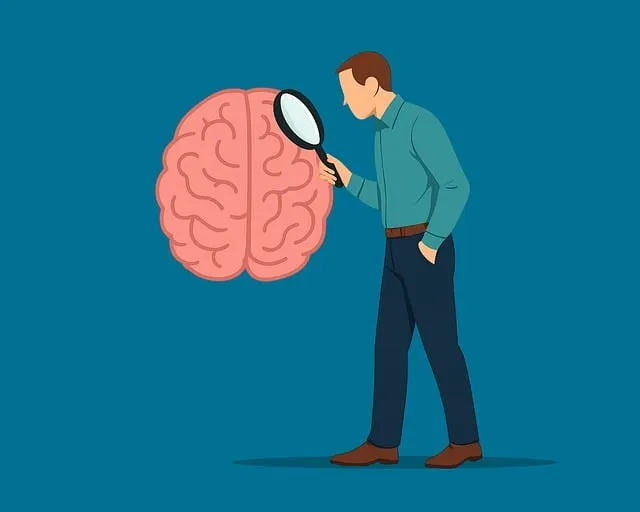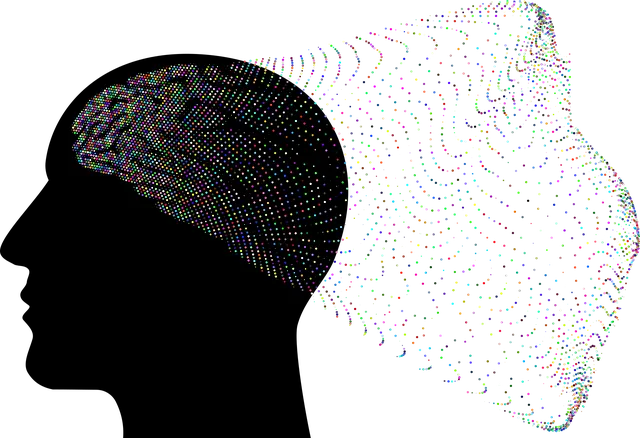Understanding Mental Health Data through various digital sources is a complex yet crucial process, enabled by the Boulder Kaiser mental health programs. These programs utilize electronic health records, surveys, social media, and wearable devices to uncover trends in stress management, influencing policy decisions and advocacy strategies. By integrating multiple data sources, they offer a holistic perspective on mental health awareness, enabling professionals to identify hidden patterns and correlations for tailored interventions and support systems. The rigorous data preprocessing standards at Boulder Kaiser ensure data integrity, while advanced statistics, data visualization, and sophisticated tools like clustering analysis and regression modeling help uncover meaningful insights. This allows for the development of evidence-based programs and improved mental health outcomes. Ethical considerations such as privacy, informed consent, and data collection biases are addressed through robust security protocols and transparency, with future directions including machine learning algorithms and qualitative data analysis techniques.
Mental health data analysis is a powerful tool for understanding complex psychological landscapes. This article explores the intricacies of analyzing and interpreting data within the context of Boulder Kaiser mental health programs. We’ll delve into the collection and sources of mental health data, the importance of preprocessing and cleaning data, advanced techniques for uncovering meaningful patterns, and practical applications in clinical settings. Additionally, we’ll discuss ethical considerations and future directions, highlighting the transformative potential of data-driven insights in mental healthcare.
- Understanding Mental Health Data: Collection and Sources
- Preprocessing and Cleaning Data for Accurate Analysis
- Techniques for Uncovering Patterns and Insights
- Interpreting Results: Practical Applications in Kaiser Programs
- Ethical Considerations and Future Directions in Mental Health Data Analysis
Understanding Mental Health Data: Collection and Sources

Understanding Mental Health Data is a multifaceted process, crucial for effective analysis and interpretation. The collection of such data begins with identifying relevant sources, which are abundant in today’s digital age. Electronic health records, surveys, social media platforms, and even wearable devices are rich repositories of information about individuals’ mental states and behaviors. For instance, the Boulder Kaiser mental health programs leverage these data sources to gain insights into stress management trends among their clientele, thereby informing policy decisions and advocacy strategies related to Mental Health Policy Analysis and Advocacy.
Moreover, the integration of data from diverse sources allows for a holistic view of Mental Health Awareness, enabling researchers and practitioners to identify patterns and correlations that might otherwise remain hidden. This comprehensive understanding is essential for tailoring interventions and support systems to address specific mental health challenges effectively.
Preprocessing and Cleaning Data for Accurate Analysis

Before diving into mental health data analysis, a critical step is preprocessing and cleaning the data to ensure accurate insights. This involves meticulously examining and preparing the dataset, addressing any inconsistencies or missing values that could skew results. For instance, researchers at Boulder Kaiser mental health programs employ rigorous data cleaning techniques to eliminate duplicates and correct errors, ensuring each participant’s information is accurately represented.
This process also includes normalizing data formats, handling outliers, and transforming variables as necessary. By implementing these practices, the team behind Boulder Kaiser mental health programs aims to provide a comprehensive view of participants’ emotional well-being, enabling the development of effective Self-Care Routine Development for Better Mental Health and the promotion of Emotional Well-being Promotion Techniques through evidence-based Self-Care Practices.
Techniques for Uncovering Patterns and Insights

Uncovering patterns and insights within mental health data is akin to piecing together a complex puzzle. Advanced statistical techniques and data visualization tools play a pivotal role in this process. Researchers at Boulder Kaiser mental health programs employ sophisticated algorithms to identify trends, correlations, and outliers within vast datasets. These methods include clustering analysis, which groups individuals based on similar characteristics, and regression modeling, allowing for the prediction of outcomes and identification of key factors influencing mental well-being.
Through the application of these techniques, researchers can uncover hidden relationships between various aspects of mental health, such as stress reduction methods (Mindfulness Meditation) and emotional healing processes. By visualizing these insights, they can communicate complex findings in a more accessible manner, guiding the development of evidence-based programs like those offered by Boulder Kaiser. Such discoveries not only enhance our understanding of mental health but also empower professionals to tailor interventions for better outcomes.
Interpreting Results: Practical Applications in Kaiser Programs

When analyzing mental health data within Boulder Kaiser mental health programs, interpreting results with practical applications is paramount. This involves translating complex data insights into actionable steps that can directly benefit participants and healthcare providers alike. For instance, identifying trends in stress levels among patients attending Stress Management Workshops can inform adjustments to curriculum content or timing, ensuring the program remains effective and engaging. Similarly, analyzing self-care practices within these workshops may reveal areas for improvement, such as incorporating more mindfulness activities or providing resources for ongoing support outside of class sessions.
By integrating data analysis into the fabric of Boulder Kaiser mental health programs, healthcare professionals can tailor interventions to better meet individual needs. This not only enhances the overall effectiveness of treatment but also fosters a culture of continuous improvement within the organization. Additionally, insights gained from risk management planning for mental health professionals can help identify early warning signs and implement preventative measures, ultimately contributing to improved patient outcomes and a safer working environment.
Ethical Considerations and Future Directions in Mental Health Data Analysis

As mental health data analysis evolves, ethical considerations become increasingly vital. With advancements in technology and the availability of vast datasets, researchers and professionals must navigate complex issues such as privacy, informed consent, and potential biases in data collection methods. Ensuring the secure handling of sensitive information, especially when dealing with individuals’ mental health records, is paramount. The Boulder Kaiser mental health programs can serve as a model for responsible data management, integrating robust security protocols and promoting transparency in their data-driven initiatives.
Looking ahead, future directions in mental health data analysis offer promising prospects. By leveraging machine learning algorithms and advanced analytics, researchers can identify patterns and trends within large datasets, leading to more accurate risk assessments (e.g., Risk Assessment for Mental Health Professionals) and personalized interventions. This not only enhances the effectiveness of coping skills development but also improves overall stress management strategies. Additionally, the integration of qualitative data analysis techniques can provide deeper insights into individuals’ experiences, ensuring a holistic understanding of mental health challenges and solutions in diverse populations.
Mental health data analysis is a powerful tool that, when applied thoughtfully, can significantly enhance our understanding of and support for individuals’ well-being. By leveraging data from diverse sources, including the innovative programs at Boulder Kaiser, we can identify patterns and trends that guide effective interventions. As techniques continue to evolve, ethical considerations must be at the forefront to ensure responsible use and privacy protection. Through continued research and collaboration, mental health data analysis holds promise for revolutionizing care delivery, ultimately improving outcomes for those seeking support in Boulder Kaiser programs and beyond.






